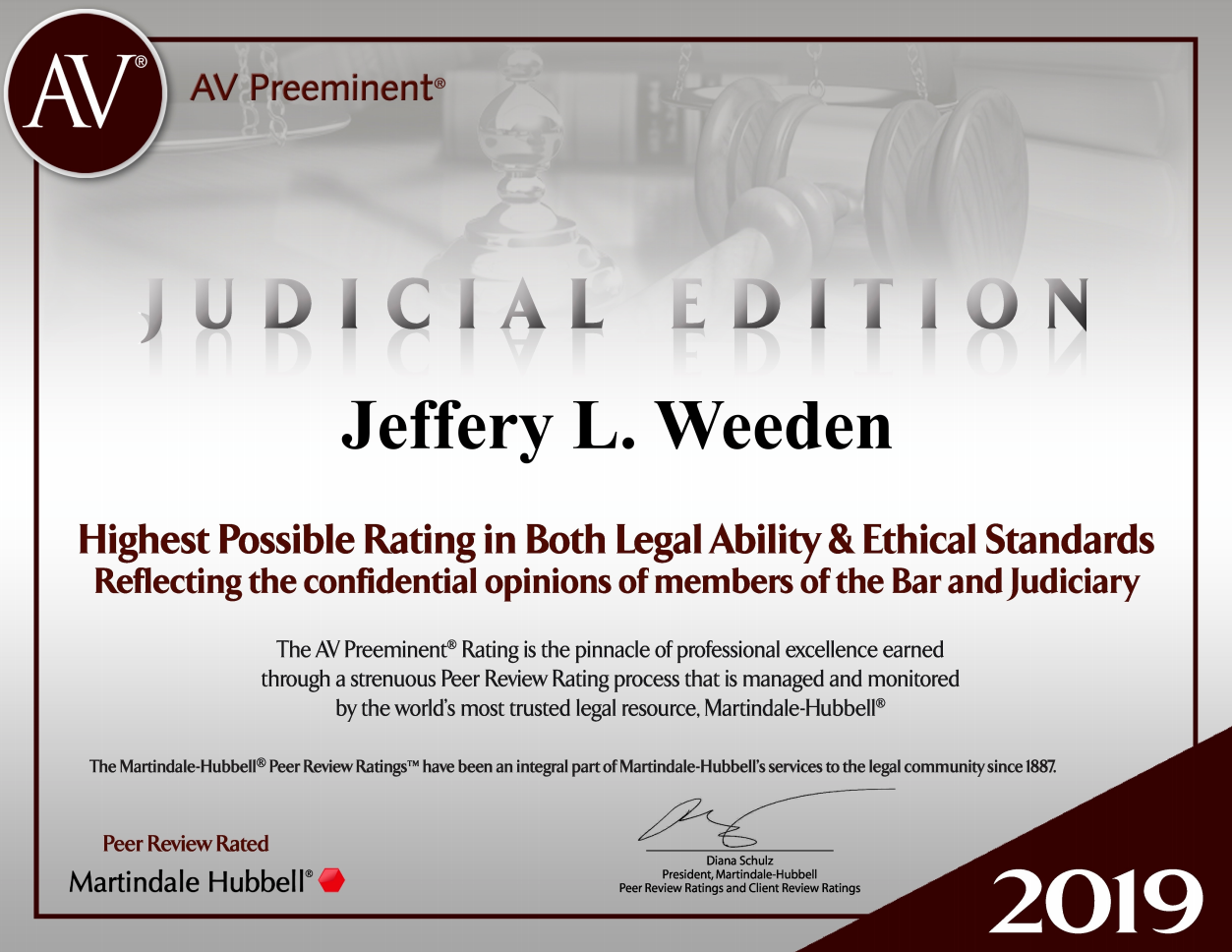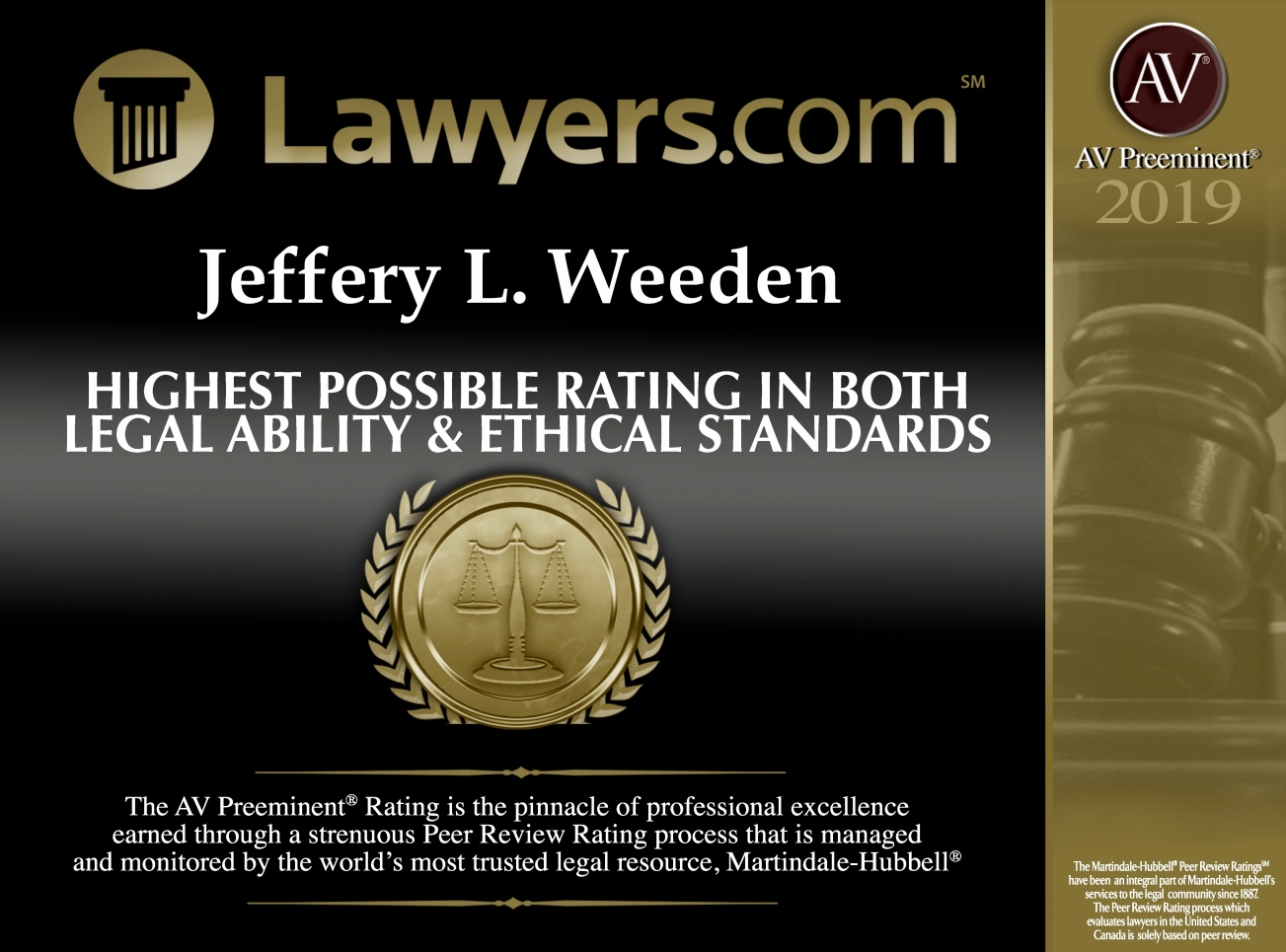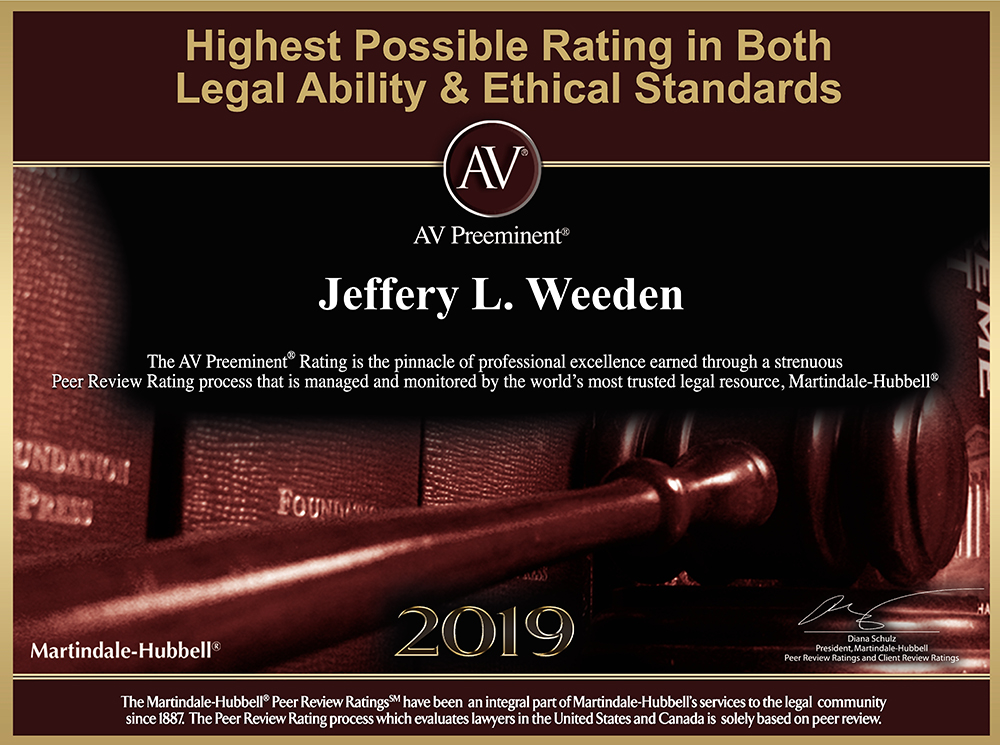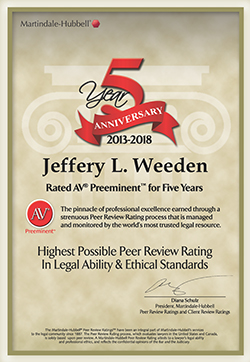Top Colorado White Collar Crime Defense Law Firm

White collar crimes in Colorado are treated as seriously as any other crime – if not more so. They are an umbrella phrase for a wide range of financially driven, non-violent criminal activities.
That’s because white collar crimes typically involve hefty sums of money and numerous victims. Even though they don’t repel us in the same way as violent criminal activities, prosecutors are often extremely tough with sentencing and convicting a defendant accused of this kind of crime. They do this in order to deter others from engaging in similar activities.
Many people accused of this type of crime in Colorado believe they will get off easy. When speaking with people suspected of white collar crime, Denver criminal defense attorney Jeff Weeden has seen this type of dismissive behavior time and again. However, the idea that white collar crimes aren’t all that serious is false, and not taking such a charge seriously can be extremely unwise.
Seek the help of the skilled criminal defense attorneys at WeedenLaw if you have been accused or charged with any type of white collar offense in Colorado. We’ve worked with a number of professionals charged with white collar crimes on both a state and federal level, so we know what it takes to get your charges reduced, dropped, or dismissed. In some cases, we may even be able to get an investigation halted before charges are filed. Protect your family, your future, your finances, and your freedom with the help of the diligent criminal defense attorneys at WeedenLaw.
What is White Collar Crime?
Historically, individuals with a high-end occupation or a generally high social status were identified by their suit, tie, and white-collared shirt. As a result, crimes committed by these types of individuals were coined “white collar” crimes, a term we still use to this day. These are crimes that are non-violent in nature and often perpetrated in a business setting.
In a legal sense, white collar crimes are defined by concealment, deception, or a breach of trust, according to the FBI. This type of non-violent crime is one that is solely committed for financial gain and is motivated by a desire to earn a personal or business advantage. More specifically, it is one in which someone’s goal is to either obtain or avoid losing money, property, or services.
What is the Difference Between Blue Collar and White Collar?
Have you ever thought about what distinguishes a white-collar crime from a blue-collar crime? You’re not alone. There are several forms of punishments for different types of offenses, so it’s important to understand the differences between the two. You may better understand the type of punishment you’re facing if you understand the type of crime you committed.
“Blue collar crime” is a term that was originally developed to describe crimes committed by members of society’s working or lower classes. Currently, blue collar crimes are those motivated by passion, fury, or other emotions, as opposed to white collar crimes, which are motivated by money. Blue collar crimes also often entail violence, whereas white collar crimes are non-violent. Additionally, while white collar crimes tend to be meticulously planned and performed, blue collar crimes occur more in the “heat of the moment”. Burglary, property crimes, theft crimes, sex crimes, assault/battery, and drug crimes are all examples of blue collar crimes.
Types of White Collar Crimes
White collar crimes are widely defined in the Colorado criminal justice system as a non-violent criminal act committed with the intention to generate financial gain. As such, this broad term encompasses a wide range of criminal activities that occur in the workplace and elsewhere.
Blackmail, bribery, check fraud, counterfeiting, embezzlement, insider trading, money laundering, perjury, tax evasion, and criminal extortion in Colorado are all forms of this type of crime. They are among some of the most common and harshly punished white collar offenses in Colorado.
Though these are the most common types of white collar crimes in Colorado, there are many others that may classify as well. If you’ve been charged with one of these or any other form of white collar crime in this state, it is important that you contact an experienced criminal defender right away. A skilled criminal defense attorney like Jeff Weeden can explain the charges against you and help you establish a good defense strategy.
Penalties for White Collar Crime in Colorado
In the past, white collar crime was simply punished with high fines. Now, greater financial industry regulation leads to more severe consequences, including significant prison sentences in some circumstances. Financial penalties such as fines, repaying victims, and forfeiture, are still a possibility if a case stays in state court. (Often, the defendant is ordered to repay the victim the entire amount taken.) However, incarceration, probation, and community service are potential punishments, as well.
As the amount of money in question rises, the punishments for white collar crimes in Colorado also rise quickly in severity. For example, it’s considered a Class 6 felony with a sentence ranging from one to one and a half years in prison as well as one year of required parole if someone embezzled or took goods worth a minimum of $2,000. Meanwhile, check fraud in Colorado of more than $2,000 is punishable by a fine of up to $100,000.
To prove guilt in this type of crime, law enforcement must show intent behind a suspected offender’s acts. This is in addition to hard evidence such as bank statements and other documentation that provides legal proof of wrongdoing. To put it another way, the prosecution must show that the offender conducted the accused activities with the intent of gaining a profit of some kind and breaking the law to do so.
Defenses Against White Collar Crime in CO
Pleading ignorance is a popular defense. This suggests that the perpetrator committed the offense unintentionally. Intoxication, incompetence, and duress are other common defenses to these charges. Duress occurs when an offender is coerced into committing a crime with the threat of bodily damage.
Entrapment is the most commonly used defense. It claims that the offense would never have been committed by the accused if it weren’t for the activities of a government actor who fooled or pressured the accused into doing so.
There are various defenses to accusations of white collar crime. However, proving one’s innocence often requires extensive, and even years, of proof. As a result, obtaining a skilled and aggressive white collar crime attorney is critical.
Contact an Experienced White Collar Criminal Defense Attorney at WeedenLaw Today
Regardless of the nature of the crime, all white collar offenses carry the potential for huge fines, lengthy incarceration, and strict probation. They can have a devastating impact on your career and personal life, and these cases are often widely publicized by the media, meaning it can haunt you forever.
Tackling these allegations on your own is very risky because there is far too much at stake. It is vital to obtain legal advice and representation if you are under investigation or have been accused of any form of financial crime or fraud. Whether you’re facing state or federal charges in Colorado, you’ll need the finest legal defense possible to escape potential life-altering repercussions.
Jeff Weeden, a Denver criminal defense attorney, has fought for the rights of Colorado residents convicted of white collar offenses since 2005. He has earned a reputation for his persistence and imaginative defense methods after assisting countless clients in their legal battles. With WeedenLaw on your side, you’ll have the best chance of having your white collar charges reduced or even dismissed.
For a free initial consultation, contact WeedenLaw today. We are prepared to go over your white collar charges and put together a strong defense for your case. Please contact us at (720) 893-3831 or email jlweeden@weedenlaw.com to get started.
































